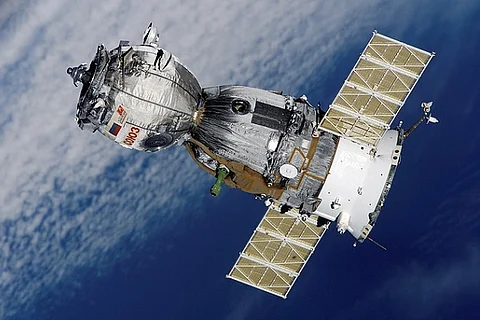

In a first, PISAT, a Bengaluru-based student-run imaging nanosatellite is all set to orbit space, come July, along with ISRO’s very own PSLV. Managed and created by over 250 students together with four other colleges in the country, the satellite is one of the first such student programs to use the S-band spectrum, compared to the usually allocated amateur spectrum.
Launched five years ago by PES University in the city, the satellite program aims to give aspiring engineers, a highly technical hands-on-experience. Named after the mathematical constant ‘Pi’, the satellite’s progression has seen a total of three to four batches of students, working with the program, during the course of five years. Every student was given at least one part of the satellite to work with, ranging from its thermal design to its structural organisation.
“Learning from some of the biggest minds in the field is an unparalleled experience, that I would never overlook,” beams Kiran, a second year student from the university, who was part of PISAT’s testing and reliability team. “I joined engineering with an eye to secure a comfortable job at the end of four years. But working with this program has now made me give research, a fair shot. I might just become a scientist,” he grins.
“This project helps in giving the students, an edge over satellite building, development and its operations. Depending on their varied interests and disciplines, students are allocated to teams,” Dr. Sambasiva Rao, former deputy director of ISRO, told The News Minute.
Funded by four engineering colleges from Tamil Nadu and Kerala, ground stations in PES University will be used to regulate the satellite upon its launch. Aiming to capture images of the earth especially that of India, PISAT is expected to stay in orbit for over a year. “Orbiting at a distance between 600 and 700 km, PISAT runs on electrical power and not fuelling. This being the reason, we expect the satellite to stay put in space for several years,” Dr Agarwal, a professor in the university said about the system’s effectiveness.
Envisioned by former deputy director of ISRO, Sambasiva Rao, the satellite is the second such student program in Karnataka, after STUDSAT’s conceptualization in 2010. “We were able to get ISRO to work with us, early on in the project, which ended up being very significant to the satellite’s growth,” he explains.
The satellite will be inaugurated on Wednesday by Education Minister T B Jayachandra, after which it will be handed over to ISRO for evaluation, shortly before the launch. “We are looking to launch more useful fellowships like this in the future. Till then, we are happy to manage PISAT from our ground control room,” Sambasiva Rao smiles.